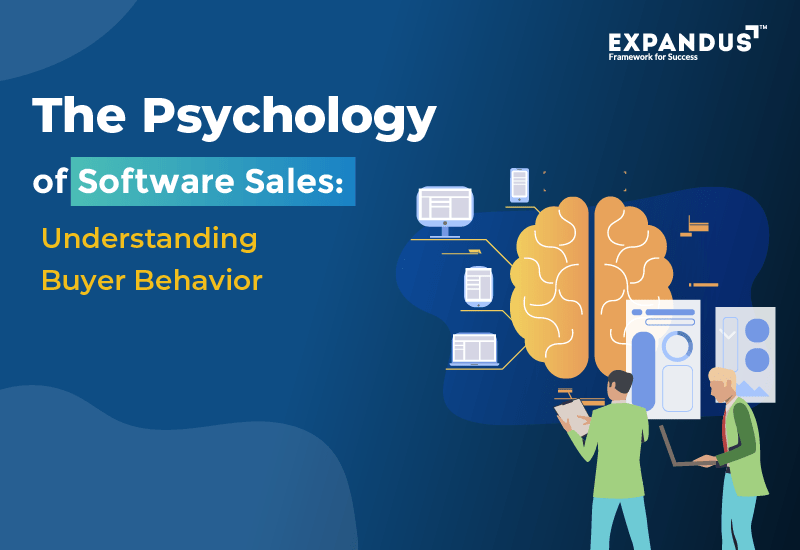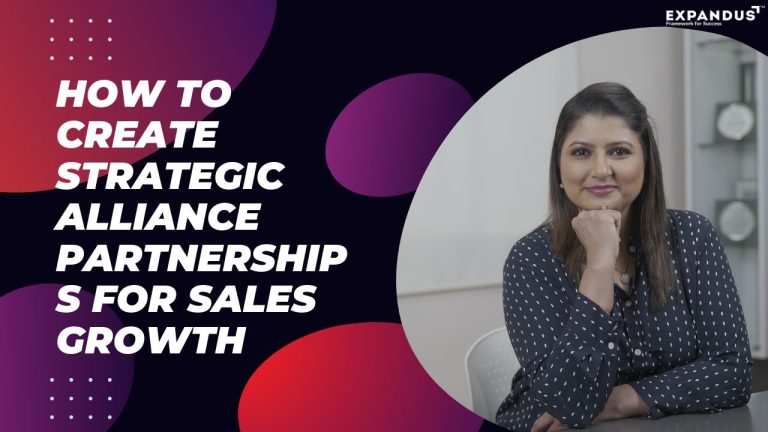The Software Sales Psychology: Understanding Buyer’s Behavior
In the bustling world of choices and constant ads, what makes a product stand out goes beyond its features – it’s about truly understanding the consumer. That’s where Software sales psychology comes in, blending art and science to create a transformative force.
Every choice we make, whether we realize it or not, is influenced by various psychological triggers. These triggers, shaped by our experiences, culture, values, and current emotions, play a big role in the decisions we ultimately land on. Think about your last impulse buy – was it a sudden burst of joy, a need for comfort, or maybe the sway of friends? Software Sales psychology delicately weaves a complex story, unravelling the threads that lead to that decisive nod of approval from a potential buyer.
The Essentials of Software Sales Psychology Strategies
Succeeding in sales is more than just knowing your product; it’s about understanding what influences people when they decide to buy. Software sales psychology is a big topic, but some basic ideas have always been important and effective. Let’s dive into these key principles. In this section, we’ll discover the essentials of Software Sales Psychology Strategies. Thus, helping you improve how you sell and make you more successful in the software market.
Buyer Behavior Analysis
Understanding buyer personas is like having secret techniques in software sales. These are detailed profiles of your perfect customers, covering things like who they are, what they like, and how they behave. Imagine it’s like knowing your customers really well.
When software sellers make these buyer personas, they can create strategies that match their customers’ needs. For example, suppose a software company finds out that one type of customer is a small business owner looking for affordable solutions. In that case, they can talk about how their product is both affordable and efficient.
It’s like speaking the language of your customers. This special way of talking makes the connection between the software and the buyer stronger, making it more likely to make a successful sale.
In simple terms, buyer personas are like helpful guides for software sellers. They help them create messages that really click with their audience, leading to more sales in the competitive software market.
The Decision-Making Process
Imagine the decision-making process like a journey customers take when they decide to buy software. It starts with them becoming aware of the software, its features and benefits, and finally, deciding whether to buy. It’s a bit like going through different stages.
For software sellers, knowing these stages is like having a roadmap. They can adjust how they talk about the software at each stage. When customers are just learning about it, sellers can share information to create awareness. As customers start thinking about it, sellers can make comparisons with other options. And when it’s decision time, sellers can highlight the benefits of their software.
By going along with the customer’s decision journey, software sellers increase their chances of making successful sales in the competitive market. It’s like guiding customers through each step of their decision-making process.
Building Trust in Software Sales
Building trust is super important when selling software. It means making potential customers feel confident and sure about your software product. Imagine it’s like building a good friendship. To do this, you can share clear details about what the software can do, show real stories from happy customers, and make sure all transactions are safe.
When customers trust the company selling the software, they feel better about buying it. This trust-building not only helps make sales but also creates long-lasting relationships. Happy customers often tell others about their positive experiences, which is like free advertising, making the software more successful in a competitive market.
Overcoming Buyer Resistance
Helping customers feel comfortable and excited about buying software is super important for sales success. Think of it like making them say “Yes” to your software. This involves tackling any worries or doubts they might have.
For example, offering a free trial lets customers try the software risk-free, making it easier for them to say “Yes.” Also, giving clear info on how the software solves specific problems helps ease any concerns.
When sellers understand and handle these worries well, they increase the chances of turning unsure customers into happy ones, leading to a successful sale in the competitive software market.
The Role of Emotions in Software Purchases
Emotions play a key role in software sales psychology, influencing sales success. When customers feel good, like excited or trusting, they’re more likely to buy software. Imagine it’s like when you find something easy and satisfying to use – that makes you want it more, right? It’s the same with software. If it looks friendly and makes things easier, customers feel good about buying it.
Also, if the software can solve their problems, it gives them a sense of relief and confidence. So, sellers who understand and connect with customers’ emotions make the whole buying experience better, going beyond just talking about features. This emotional link really helps sell software well in a competitive market.
Pricing Psychology
How you price software is a big deal in making sales work well. It’s like using smart pricing tricks to make customers think the software is a great deal. For example, saying it’s a “limited-time offer” or just showing the price clearly can make customers feel like they need to buy it now and trust the deal.
Also, having different pricing plans for different needs makes the software interesting to more people. When sellers understand how pricing affects what customers decide, they can make their software look just right in the market, making it more likely to sell well. This smart pricing approach makes the software a great deal, keeping it successful in a busy market.
Cognitive Biases in Software Purchases
Cognitive biases play a significant role in software sales psychology, influencing sales success. These biases are the brain’s shortcuts that affect decision-making. Our brains take shortcuts when making decisions, and these shortcuts can affect how we decide. For example, the anchoring bias happens when people rely too much on the first piece of info they get, like the first price they see. Sellers can use this by setting a smart starting point to make the software look more valuable. There’s also the confirmation bias, where people like info that agrees with what they already think.
Sellers can use this by showing info that supports how great the software is. Knowing and using these brain shortcuts helps sellers guide customers to make good choices. For instance, talking about positive user reviews helps make the software look even better. Understanding and working with these brain shortcuts helps sellers do well in the competitive software market.
Personalization and Customization
Making software personal and tailored is like giving each user a unique experience. Think of it as customizing a piece of clothing to fit perfectly. Features that users can adjust make the software feel just right for them. It’s like having a favorite flavor of ice cream – everyone has their own taste.
Sending messages that are just for the user, like emails based on what they do, adds an interesting touch. Imagine getting a letter that feels like it was written just for you. When sellers pay attention to what users like, it not only makes them happier but also increases the chance of making a sale. This personal touch is more than just cool features; it creates a special connection between the user and the software. In a busy market full of options, this special bond makes the software stand out, ensuring a successful journey from thinking about it to buying it. The more the software fits the user’s style, the brighter it shines, making a lasting impression and adding to its overall success.
Utilizing Scarcity and Urgency
Creating a sense of urgency and scarcity is a clever trick in software sales psychology that really helps boost sales. Basically, it’s about telling customers that something is limited or there’s a special offer, and they need to decide quickly. You’ve probably seen phrases like “limited stock” or “special offer for a limited time.” These make people feel like they might miss out if they don’t act fast.
Using this trick, software sellers make customers feel a bit worried about missing out, and that often convinces them to buy because they want to get the exclusive benefits before they’re gone. It’s like playing into people’s natural desire for things that seem rare or urgently needed, and it works really well to sell software in a competitive market.
The Influence of Social Proof
Social proof is a big deal in software sales. It means showing positive feedback from other users to convince potential buyers. For instance, sharing customer testimonials, good reviews, or saying how many happy users there are builds trust.
When possible customers see that others liked the software, it makes them feel more sure about buying it. Social proof is like saying, “Look, others love it, so you might too!” This helps a lot in convincing people to choose the software in a market with many options. It’s like when you see a line at a food stand – it makes you think the food must be good because others like it.
Technology in Software Sales
Using technology is crucial in selling software, and it helps in making more sales. This means using advanced tools and platforms to make the selling process better. For example, putting chatbots on a website helps users right away, making their experience better. Also, using data analytics helps understand what customers like, so you can suggest things they might be interested in.
Automation makes things easier by handling tasks and making sure you keep in touch with customers. When sellers use the latest software sales technology, it makes things more efficient and shows the software as modern and responsive. This high-tech approach connects with customers and makes the software look innovative and up-to-date, leading to more successful sales in the competitive software market.
Wrapping It Up
Analyzing buyers’ behaviour in selling software is not just a good plan but something you really need to do. Knowing the basics of software sales psychology has given us important insights into the intricate dance between sellers and buyers. Personalization, pricing tricks, and using technology are powerful tools that make the whole sales experience better.
Mastering software sales psychology sets the software apart, making sure it’s not just seen but stays successful over time.
Connect with US for more IT Business Coaching.









